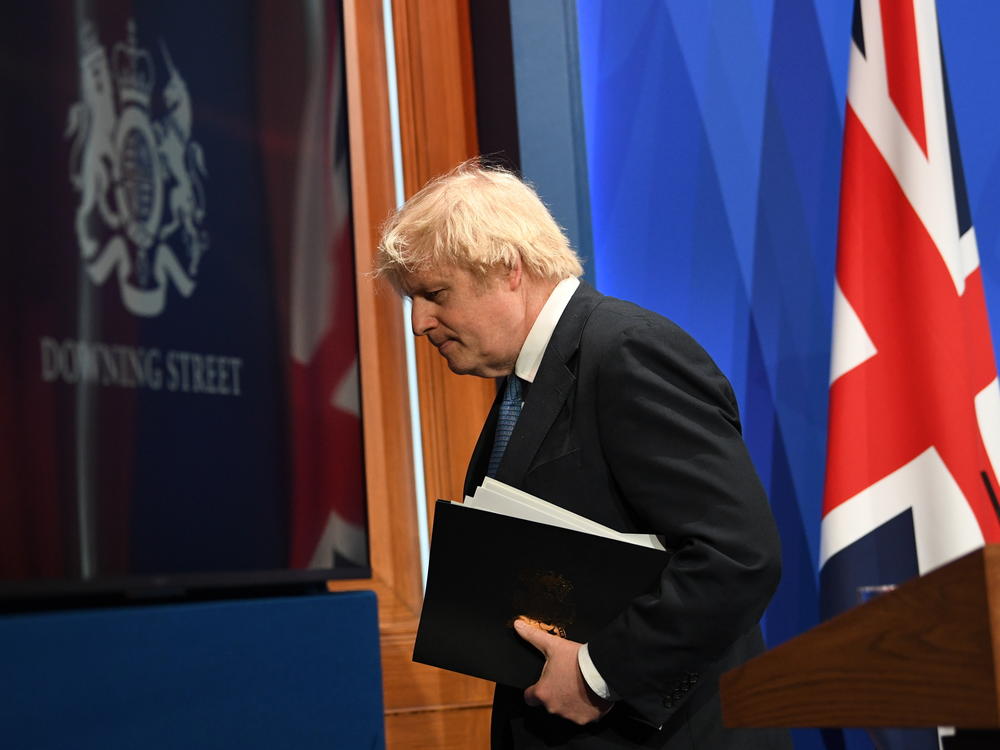Section Branding
Header Content
England To Offer Free Twice-A-Week COVID-19 Tests
Primary Content
England is aiming to offer free twice-a-week rapid COVID-19 tests for everyone in the coming weeks, but critics think it will do more harm than good because of the possibility of incorrect test results.
U.K. Prime Minister Boris Johnson confirmed Monday in a press conference that England will start easing lockdown restrictions April 12 in an effort to open the economy again, beginning with businesses including pubs and gyms.
Johnson cited vaccination rate in England, saying, "We think that these changes are fully justified by the data."
Johnson also said testing would be valuable in the way forward, along with immunity and vaccination status.
"I think that testing has been a massive advantage to this country," he said. "Our ability to conduct I think 112 million tests, the last number I saw."
However there are some critics of the plan.
"Mass testing is a scandalous waste of money," Allyson Pollock, professor of public health at Newcastle University told the BBC. She said rapid testing would lead to false positives, meaning individuals would self isolate unnecessarily because of a test error.
From April 9, lateral flow tests--swabs taken through the nose or mouth-- will be free and offered at testing sites, pharmacies and through home delivery. The tests will show results in about 30 minutes and be offered by:
- A home ordering service, which allows people to order lateral flow tests online to be delivered to their home
- Workplace testing programs, on-site or at home
- Community testing, offered by all local authorities
- Collection at a local PCR test site during specific test collection time windows
- Testing on-site at schools and colleges
England is also launching a 'pharmacy connect' service that will allow people over the age of 18 to collect a box of seven tests from their local pharmacy.
The move is part of a larger effort to reopen the economy.
"Alongside the rollout of the vaccine, regular testing is going to be an essential part of the easing of restrictions as it will help us quickly suppress the spread of variants," a press release from the Department of Health and Social Care, Johnson and Secretary of Health Matt Hancock read.
Both Johnson and Hancock say the weekly tests will help move England toward reopening.
"Around one in three people who have COVID-19 show no symptoms, and as we reopen society and resume parts of life we have all dearly missed, regular rapid testing is going to be fundamental in helping us quickly spot positive cases and squash any outbreaks," said Hancock.
"As we continue to make good progress on our vaccine program and with our roadmap to cautiously easing restrictions underway, regular rapid testing is even more important to make sure those efforts are not wasted," said Johnson.
The tests were already being carried out in England for school-age children, college students, their families and those who need to leave home for work.
U.K. officials and Johnson are also looking into a COVID-19 passport system, which would allow citizens to freely travel internationally after vaccination. Meanwhile, the U.K. has recorded 126,862 COVID-19 deaths and 4,362,150 total cases since the beginning of the pandemic.
Jeannette Muhammad is an intern with Here & Now.
Copyright 2021 NPR. To see more, visit https://www.npr.org.

